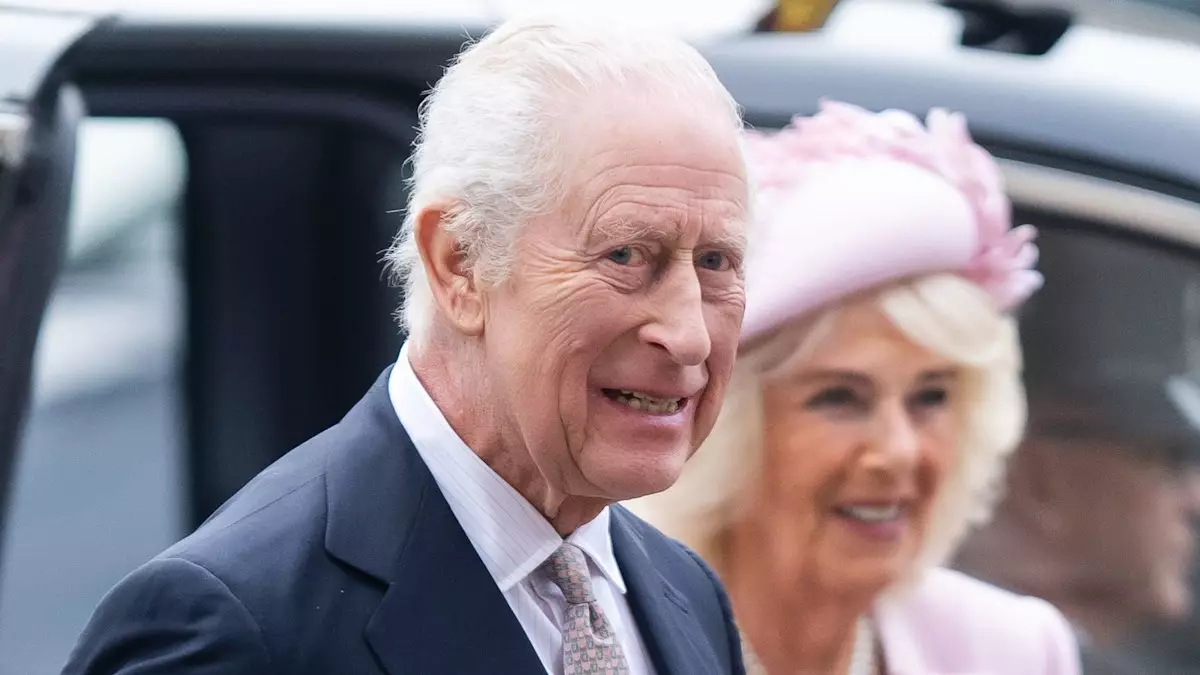The recent news surrounding King Charles’s hospital stay due to cancer treatment side effects has ignited a wave of concern among royal enthusiasts and the general public. While Buckingham Palace reassured everyone that the monarch is recovering and has plans to visit Italy shortly, the situation raises critical questions about the nature of royal responsibilities and the personal toll that comes with them. The dedication exhibited by the King, despite health challenges, shines a light on a broader issue prevalent not only among public figures but also in the lives of many working professionals today.
Work Ethos: A Double-Edged Sword
The instinct to continue working despite adversity speaks volumes about King Charles’s character. His commitment to fulfilling royal duties resonates with many. Nevertheless, this unwavering work ethic can also be detrimental, especially at the age of 76 when recovery should arguably take precedence. Queen Camilla’s fears regarding her husband’s relentless pace appear justified. Numerous reports identify that even following his discharge, King Charles dived back into state affairs, exhibiting a classic case of a workaholic unable to detach from his obligations.
The King’s behavior underscores a widespread societal issue: the tendency to equate an individual’s worth with their productivity. High achievers often find themselves trapped within a cycle where success must be continuously proven, and rest becomes a luxury rather than a necessity. This mindset is damaging not only on a personal level but can also affect broader societal attitudes towards work-life balance.
Expert Opinions and Societal Impacts
Insights from experts like Dr. Mohammed Enayat indicate that various psychological and social factors can fuel the relentless drive for productivity. The notion that “success” equates to incessant work has infiltrated many segments of society, leading to a culture of overwork. In King Charles’s case, being a high-profile public figure, the expectations to fulfill duties relentlessly are magnified. However, as Dr. Enayat points out, this can lead to detrimental health impacts, including increased anxiety and sleep disturbances, which undoubtedly need attention, particularly when health concerns are already present.
Recovery professional Elizabeth Walker elaborates on this phenomenon, focusing on how identity can become intertwined with work. Her assertion that many workaholics struggle to define themselves beyond their roles indicates a deep-rooted fear of inadequacy that can lead to burnout. When individuals continuously override their basic needs for rest and recuperation, they treat their bodies as mere machines, ignoring the complex emotional and psychological components integral to overall well-being.
The Cost of Relentless Pursuit
The risks associated with such a work-intensive lifestyle is profound. As Walker aptly points out, ignoring the need for mental respite can lead to a deterioration of one’s emotional and psychological health. The insistence on constant productivity robs people of the essential opportunity to feel and process their emotions. When emotional needs are subordinated, the nervous system undergoes significant changes, leading to heightened anxiety on the part of individuals who can’t recalibrate themselves to accept moments of calm.
This royal situation begs the question: Should King Charles reconsider his approach to work in the context of his health and the values he wishes to exemplify? The responsibility of a monarch is undoubtedly substantial, but there’s an imperative lesson here about self-care that transcends royal duties. History suggests that true leadership is demonstrated not only through dedication but also through the ability to prioritize personal health.
A Call for Balance and Reflection
In these tumultuous times, both for the monarchy and wider society, the narrative surrounding King Charles’s work ethic can serve as a cautionary tale. It isn’t merely about the image of a king—this situation encapsulates the struggles of individuals everywhere who find themselves caught in a productivity trap. The need for rest, reflection, and emotional processing is not something that should be sidelined. As the public watches the King prepare for yet another royal tour, one can only hope that he will heed the quiet urgings of Queen Camilla and take the necessary steps to nurture his well-being.
In a world obsessed with output, the greatest testament to strength may ultimately lie in the recognition of when to pause and reflect.


Leave a Reply